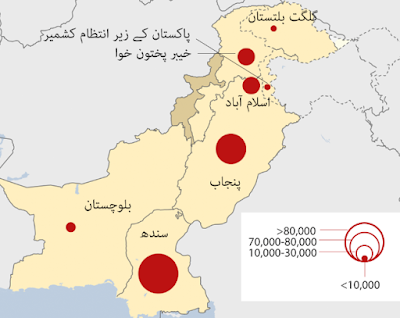Education as a stage for human development
The uncertain and complex context that the new century is facing us, the exacerbation of conflicts at all levels, globalization and the technical and technological advances that link us to a world in constant movement, redefinition and advances in different areas and spheres of human life, have brought about in the disciplines and in education, profound transformations that need to be taken into account to adequately face the challenges and repercussions of contemporary times.
Education, which does not finish responding to the social requirements of the moment, and the urge to build relationships that strengthen development with an ethical and caring sense, are reasons to advance in the reflection on the relationship between education, communication and human development, and about the way we get involved in the educational process, which shows an attitude towards themselves, others and, in general, towards our commitment to society. An education for human development considers the type of man that should be formed and, therefore, the type of society. Therefore, it must be a potentiator of the realization of human needs and spheres of human development, and for this, significant learning processes are required, that is, learning environments that favor the harmonious relationship of knowledge, doing and being of the participating people.
One of the central aspects of this learning is a communicative action that stimulates dialogue, the expression of needs, interests and problems, based on what each one is, feels and thinks in the world of individual and collective life, what that contributes to strengthening and recreating human needs and to building varied, motivating, meaningful, effective learning environments, where participation, autonomy, respect, subjectivity and inter subjectivity are privileged, based on the recognition and acceptance of cultures and different logic of the subjects linked to the educational process.
In this direction, an educational process for human development must foster dialogue with culture, with multiculturalism. It is necessary to guide cultural diversity towards a global educational proposal, an education for citizenship that promotes coexistence, participation, social cohesion, inclusion, stimulating the sense of belonging as satisfying the need for identity.
Therefore, in educational practice it is necessary to ask ourselves how the educator-educator relationship is taking place, if it is carried out from an instrumental action, focused on the contents, from an exclusively explanatory and objective perspective of the phenomena related to science , or if there is a cognitive interest in a reciprocal understanding, referred to the understanding of oneself and of the other, always looking for a common ground, of mutual benefit. In this sense, a critical and reflective thought about education in general, and in particular about the educational process and the practices that we carry out in our daily lives, allows us to reveal its intention.
It is important to consider that in this rationality in which the educational task is inscribed, the relationship with knowledge should not be centered on the domain of theories, with a technical reason directed towards productive knowledge. The world of scientific-technical rationality supposes a certain way of thinking, a place from which one thinks and says, one does what one does. From there, schemes of thought and action have been constructed in the name of truth, objectivity, and certainty that have guided educational action.
Based on this context of rationality, our experiences tend to be located in the objective world, in which it is possible to state the existing state of affairs, that is, the facts with which we face the world, and in this sense it is possible that our Actions have a more functional sense and thought guides the action, in other words, that their logic is solely operational. But, unquestionably, in social life and in educational practice phenomena arise that go beyond the known and explained realities, which are not They can understand from predictive and verifiable schemes, but they demand to be approached from another place, from the place of understanding, interpretation and emancipation.
It is appropriate here to consider that the problem is not in the foundation of science, nor in the revision of the structure of scientific theories. It is more relevant to ask ourselves what is the use that science has for the organization, balance and preservation of life; if the use of scientific results guarantees a real experience of justice and solidarity, if it enables human coexistence; if the knowledge acquired and built in the educational process have allowed us to be more human; and if we have reached or are reaching the construction of a common horizon of transformation, of emancipation of our actions by seeking a common interpretation of pedagogical practices and the relationships that are woven there.
In this order of ideas, it is appropriate to ask ourselves: What is the situation and the horizon of education that we provide in the daily life of our practices?
Now, in educational practice a contradiction emerges that is expressed in its relationship with scientific-technical rationality and gives rise to a tension that transforms our way of being and doing in the world, that is, the way we speak, act, we feel and think. It is important, then, to understand critically what is happening, what situation we are in; why we act in this way and not otherwise; why the theory does not recreate the practice and the practice becomes solitary, invisible, devoid of meaning and object. Understanding this situation can open us to new possibilities that contribute to building the horizon of education.
A humanistic vision of education requires of us educators a philosophical and existential position that mobilizes our practices towards the construction of new knowledge, new ways of communicating, new methods, new ways of being and acting with and alongside the other, that explicitly reflect the type of education we offer in our daily practice.
Within this framework, the communicative relationship established between educator and student must be considered, and it is derived from the historical situation and the horizon in which instrumental rationality and communicative rationality are inscribed.
That is why when we talk about communication we cannot locate it as a toolbox, nor as a set of guidelines that direct the relationship with the other, nor as those instrumental versions that only look at communication from the use of techniques and means. Communication cannot continue to be interpreted as the relationship established between a sender who transmits a message to a receiver through a certain channel, which supposes a static and passive relationship between student and educator.
From Habermas' perspective , communicative interactions can be carried out in two different ways: when language is used for strategic purposes, which gives way to strategic action, and when it is used for communication purposes, which gives place for communicative action. The interpersonal relationships that necessarily occur in the educational process, conceived as communicative action, are derived from an inter subjective world view, in which a cooperative search for agreement cannot be dispensed with, where the participants make a common interpretation of the situation oriented to understanding and understanding.
On the contrary, the vision of communication from strategic action is derived from an objective vision of the world, from the instrumental rationality in which language is used for strategic purposes, seeking to exert an influence on others, allowing the satisfaction of our purposes for achieving an end, which is obviously contrary to any type of inter subjective agreement that favors understanding.
From the strategic action, the educator-student relationship has as its intention the search for agreements based on the interests of one of the parties, in this case, the one with the most power, knowledge and information. These interests seek to respond to the requirements in compliance with regulations, which do not guarantee good training, but the preservation of routines established in institutions over time.
On the contrary, the vision of communication from strategic action is derived from an objective vision of the world, from the instrumental rationality in which language is used for strategic purposes, seeking to exert an influence on others, allowing the satisfaction of our purposes for achieving an end, which is obviously contrary to any type of inter subjective agreement that favors understanding.
From the strategic action, the educator-student relationship has as its intention the search for agreements based on the interests of one of the parties, in this case, the one with the most power, knowledge and information. These interests seek to respond to the requirements in compliance with regulations, which do not guarantee good training, but the preservation of routines established in institutions over time.
Unlike strategic action, in communicative action, a cooperative search for agreement cannot be dispensed with, since a true agreement requires the participation of the people involved in the educational act who must make a common interpretation of the situation in which are immersed. The shared world of life provides the necessary elements to understand what the other is saying, such as the search for consensus, production and exchange of meanings of educational actions and verbal and nonverbal, gestural and bodily expressions.
Educational practice requires not only understanding what we are being told, but also understanding ourselves through communication. When we listen to someone in their claims, in their demands for knowledge, explanations, and theoretical and practical relationships, with the intention of interpreting their needs from their perceptions, knowledge, affections and evaluations, and not from our own opinions, we are making progress in the construction of an education towards understanding, which has as its center the recognition and respect for the other and for differences.
It is essential that students develop communicative competence, which implies making inter subjectivity a favorable setting for individual and collective teaching and learning, because it allows us to recognize the existence of different symbolic worlds (beliefs, customs, habits and representations of the culture, knowledge and education), whose difference can be an obstacle to understanding among those who participate in the educational act.
Said competence is not acquired through rules or methodical processes that guide communicative action, but rather in the relationship that we establish daily with others, in individual and collective action. It is in dealing with others that we exercise our capacities and it is possible to recognize ourselves both in our own limitations and in our possibilities.
Communicative action favors the encounter with the reasonable, which implies recognizing that what does good is what we must put above everything else. It does not mean elimination of differences, but the exercise of our capacity for provisional agreements and consensus. Conyurension does not imply agreeing with the other, but listening to their reasons from the difference.
Only through communication is it possible to guarantee quality in the interaction with others and "(...) think and act with an eye towards what is common, because this is more promising than the excessive emphasis on differences, especially when they lock the individual or human groups in their own concerns and needs and prevent the obtaining of the wealth that is achieved when one is capable of opening up to the other ”.
It is important, then, to reflect on the relationship between communication-education and human development in our daily educational practices, if they really aim at transforming the teaching and learning process, disciplinary training, the student and himself.




Comments
Post a Comment